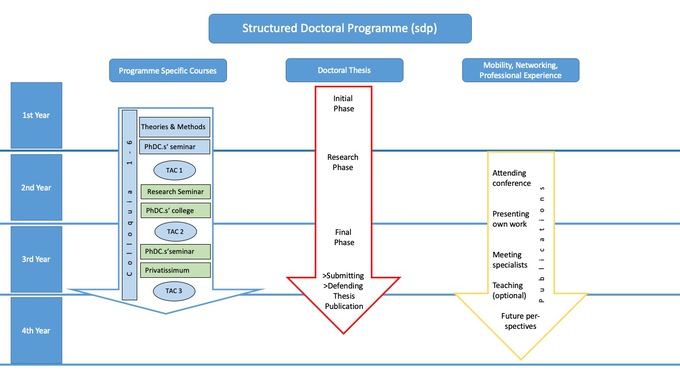The Structured Doctoral Programme Music Matters started on October 1st 2020 and aims to develop a “contemporary diagnosis of musical matters” and their social implications with special focus on materiality, knowings or practices in performing arts. In order to outline and contextualize this inherently interdisciplinary field of research theoretically, empirically and/or historically, we refer to the concept of Late Modernity.
The Structured Doctoral Programme offers research-oriented, curricularly anchored and coordinated supervision of the dissertation, interdisciplinary exchange, e.g. within workshops, symposia, writing retreats and access to international networks. The following disciplines and perspectives will contribute to the discourse (in alphabetical order):
- cultural institutions studies (Dagmar Abfalter)
- cultural studies (Andrea Glauser)
- ethnomusicology (Ursula Hemetek)
- gender studies (Evelyn Annuß)
- music sociology (Rosa Reitsamer)
- musicology (Fritz Trümpi)
- performance studies (Markus Grassl)
- popular music studies (Ralf von Appen)
The structured doctoral programme “Music matters” is designed as a 4 year programme with specific courses complementing the work on the PhD thesis, as described in the illustration below.
In addition to the mandatory courses defined in the curriculum, the sdp offers further units for PhD Candidates (PhDC.s), such as workshops or a writing retreat. Recurring modules are the colloquia and the TACs (Thesis Advisory Committee meetings). There are courses offered by the sdp (blue) and courses from the regular calendar (green).
In the first year (initial phase), doctoral candidates and supervision team(s) become familiar with each other. One focus is on the existing exposés submitted as part of the application process. They will be reworked and further developed. The additional courses form a common ground for the entire programme. Theoretical and methodological work with a focus on materiality, knowings and practices will serve as a basis for the candidates to map their own projects within their disciplinary field(s), but also to establish a shared vocabulary and a common language to discuss topics with the other candidates. At the end of the first year, the candidates should have a refined and elaborated idea of their topic including the relevant literature and the state of art, as well as a sound knowledge about theoretical and methodological positions related to the programme. The initial phase is completed with a first TAC-meeting.
The second year (research phase) is dedicated to the individual research of the candidates. However, they will be in a constant exchange with their supervision team and their colleagues. This is guaranteed by the TAC and the colloquia. Mobility, international exchange and networking will continue to be crucial aspects in the following years of the PhD. Candidates will be encouraged to attend conferences related to their topics, present their work outside the programme and meet specialists for additional input.
The third year (final phase) will focus on writing and finalizing the PhD thesis. Therefore, the milestones are the completion, submission and defense of the PhD thesis. In order to support this important phase and ensure an intensive exchange with the supervision team, we will offer a writing retreat. In addition to the mobility and networking aspects, professional experience such as teaching may be gained during the third year. Ideally, graduation takes place at the end of the third year.
Depending on the individual timetable, the fourth year can also offer the possibility to shape future perspectives, such as writing an application for third-party funding or applying for post-doctoral positions and fellowships.
